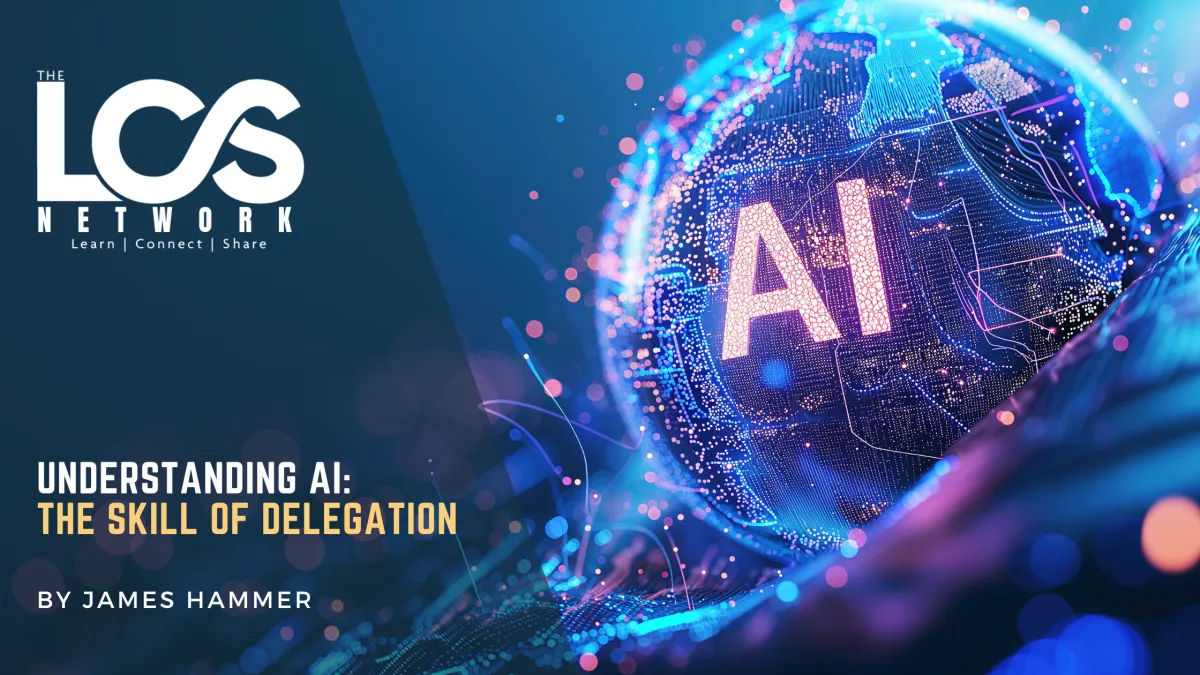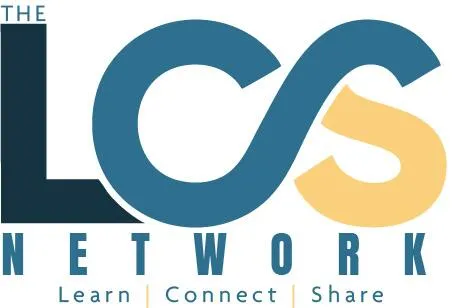News & Information
Articles

You Already Know How to Use AI:
Understanding Delegation is Key
Transforming AI anxiety into confidence through skills you already possess, by James Hammer.
If you've ever asked a colleague to help with a project, congratulated a team member on
excellent work, or guided someone through a complex task, you already possess the
fundamental skills needed to work effectively with artificial intelligence. The problem isn't that AI
is too complicated. The challenge is that no one has provided a clear framework for AI adoption
that connects to skills we already have, leaving most people to figure it out through trial and
error.
The "Plug and Play" Misconception
For decades, we've been conditioned to expect technology to be "plug and play." Click a button,
get a result. Enter data, receive output. This mental model works perfectly for traditional
software like spreadsheets or email programs, but it creates a frustrating disconnect when
applied to AI systems.
When someone approaches ChatGPT or Claude like a search engine, typing in a brief
command and expecting perfect results, they often walk away disappointed. "AI is overhyped,"
they conclude. "It doesn't understand what I need."
But AI isn't broken, we just expect it to act like plug and play... here's why that's a problem:
Plug and play technology follows predetermined rules. Click "Save" in Microsoft Word, and
it executes the same sequence of instructions every time. AI systems, however, operate through
pattern recognition and probabilistic responses. They're designed to interpret context and
generate varied outputs based on how you communicate with them.
Plug and play tools don't need context. A calculator doesn't need to know why you're adding
numbers or what you plan to do with the result. AI systems, like human collaborators, perform
better when they understand the bigger picture, your goals, and the context of your request.
Plug and play technology gives consistent results. The same input always produces the
same output. AI systems are intentionally designed to provide varied, contextual responses. The
same prompt can yield different results based on subtle changes in phrasing, additional context,
or the system's understanding of your intent.
Plug and play tools don't require feedback loops. You don't coach your spreadsheet to
improve its formulas. AI systems, however, improve through iteration, much like how you'd work
with a human assistant, providing feedback and refining your requests based on initial results.
When we approach AI with plug-and-play expectations, we miss its greatest strength: the ability
to collaborate intelligently when guided by someone who understands how to communicate
effectively.
Introducing the Organic Delegation Framework
The Organic Delegation Framework recognizes a simple truth: effective AI interaction isn't about
learning new technology skills. It's about applying human collaboration skills you already use
every day.
Think about the last time you delegated an important task to a colleague. You didn't just bark out
an order and walk away. You likely followed a natural process that looked something like this:
The Four Phases of Effective Delegation
1. The Impulse Phase
● You recognized a need: "I need help with this"
● You assessed your resources: "Can I do this myself or should I delegate?"
● You made a decision: "I'm going to ask Sarah to handle this"
2. The Engagement Phase
● You provided context: "Here's what we're trying to accomplish and why it matters"
● You explained the specific task: "I need you to create a presentation for the board
meeting"
● You set expectations: "It should focus on our Q3 results and include the regional
breakdown"
● You checked for understanding: "Does that make sense? Any questions?"
3. The Supervision Phase
● You gave them space to work but remained available
● You checked in periodically: "How's it going? Need any clarification?"
● You provided course correction when needed: "Actually, let's emphasize the growth
metrics more"
● You reinforced good progress: "That slide layout looks perfect"
4. The Evaluation Phase
● You reviewed the final result against your expectations
● You provided feedback: "This is exactly what we needed, but let's tweak the conclusion"
● You integrated their work into your larger project
This process is so natural that most people do it unconsciously. Yet these same steps provide
context, set clear expectations, give feedback, and iterate toward better results are exactly what
effective AI collaboration requires.
Why This Framework Changes Everything
The Organic Delegation Framework transforms AI from an intimidating "black box" into a familiar
collaboration pattern. Instead of learning an entirely new skill, you're applying expertise you've
developed through years of working with people.
Consider these parallels:
With Human Colleagues:
● You adjust your communication based on their expertise level
● You provide more context when working with someone new to your field
● You give feedback and guidance throughout the process
● You don't expect perfection on the first try
With AI Systems:
● You adjust your prompts based on the complexity of your request
● You provide context about your industry, audience, and objectives
● You refine and iterate based on the initial results
● You understand that great output requires good input
Real-World Application: From Frustration to Success
Let me show you how this works in practice. Recently, a marketing director approached me
frustrated with AI tools. "I asked it to write a product announcement," she said, "and it gave me
generic corporate jargon that sounds nothing like our brand."
Her original prompt was: "Write a product announcement for our new software."
Using the Organic Delegation Framework, we rebuilt her approach:
Context Setting: "I'm the marketing director for a small B2B software company. Our voice is
friendly but professional, and we focus on solving real problems for busy operations managers."
Task Specification: "I need to announce our new inventory management feature. It helps
reduce stock outs by 40% through predictive analytics, but I want to emphasize the peace of
mind it gives managers, not just the technical specs."
Expectation Clarification: "The announcement should be under 300 words, suitable for email
and LinkedIn, and include a clear call-to-action for a demo."
The resulting content was on-brand, compelling, and ready to use with minimal editing. Same AI
tool, dramatically different results.
The Educational Revolution:
Skills Transfer vs. Technical Training
Traditional AI education focuses on learning new tools and techniques. The Organic Delegation
Framework takes the opposite approach: it helps people recognize and transfer skills they
already possess.
This shift is revolutionary for professional development. Instead of feeling like beginners
learning complex technology, learners become confident practitioners applying familiar expertise
in new contexts. The psychological difference is profound.
In our workshops, we see this transformation happen in real-time. When someone realizes
they're not learning to "use AI" but rather applying their delegation skills to a new type of
intelligent assistant, their entire demeanor changes. Anxiety transforms into curiosity.
Resistance becomes engagement.
Beyond Individual Skills: Organizational Transformation
The Organic Delegation Framework doesn't just change how individuals use AI. It transforms
how organizations approach AI adoption. When leaders understand that AI implementation
builds on existing human collaboration skills rather than replacing them, they can:
● Accelerate adoption by leveraging current team strengths
● Reduce resistance by connecting AI to familiar processes
● Improve outcomes by focusing on collaboration quality rather than tool features
● Maintain culture by emphasizing human expertise and judgment
Looking Forward: The Future of Human-AI Collaboration
As AI capabilities continue to expand, the Organic Delegation Framework becomes even more
valuable. Whether we're working with today's language models or tomorrow's more
sophisticated AI agents, the fundamental principles remain constant:
● Effective collaboration requires clear communication
● Context and feedback improve results
● Human judgment guides the process
● Iteration leads to excellence
The future belongs not to those who can write the most sophisticated prompts, but to those who
can collaborate most effectively with artificial intelligence. And that future is built on skills we
already possess.
Getting Started: Your Next Step
The beauty of the Organic Delegation Framework is that you can begin applying it immediately.
The next time you interact with an AI tool, pause and ask yourself:
● "How would I explain this request to a smart colleague who's new to my industry?"
● "What context would help them understand why this matters?"
● "How can I be specific about what success looks like?"
● "What feedback can I give to improve the result?"
You already know how to delegate effectively. Now you know how to apply those same skills to
artificial intelligence.
The question isn't whether you can learn to use AI. The question is: how will you leverage the
collaboration skills you already have to transform your work in ways you never imagined?
Join Us Every 2nd Friday of the Month
11:30am-1pm



